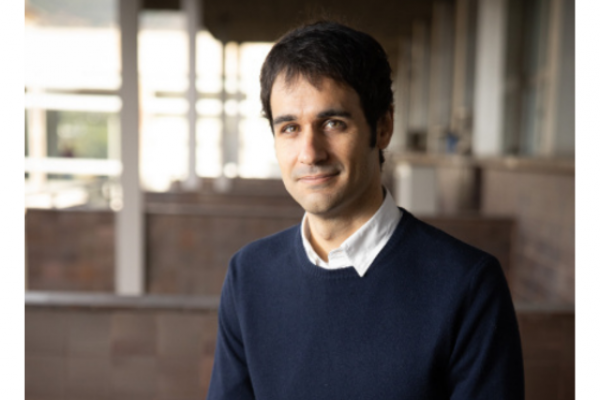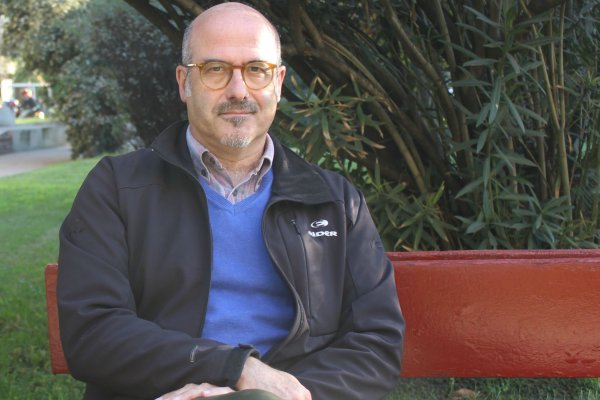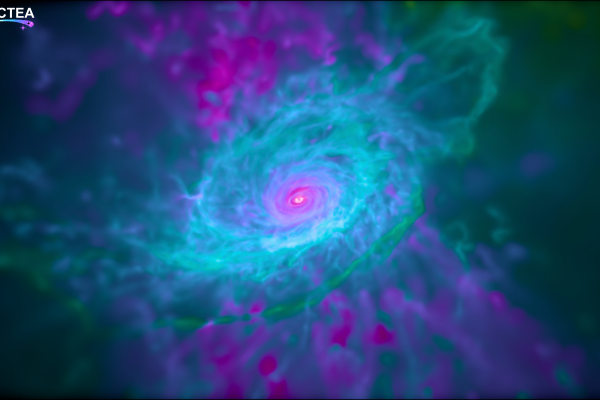Héctor Gil-Marín, researcher at the Institute of Cosmos Sciences of the University of Barcelona and the Institute of Space Studies of Catalonia (ICCUB-IEEC) has won one of the seven 2023 Leonardo Grants in Physics awarded by the BBVA Foundation.
These grants are given to researchers with ages between 30 and 45 years old of exceptional talent that have highly interesting scientific projects. After thoroughly reviewing more than 100 applications, the BBVA evaluation committee decided to offer one of the grants to the ICCUB-IEEC physicist, to support his research on dark energy using the data of the DESI Survey with cutting-edge analysis techniques to maximize the return of information and characterize some of the properties of dark energy.
With this support, the Leonardo Grants aim to foster talent and originality in research. Each grant consists of a financial aid of 40.000€ that will help researchers carry out their project and strive towards professional consolidation.
The research project
The current understanding of the cosmos is governed by the standard model of LCDM cosmology, from its acronym Lambda-Cold Dark Matter, proposed at the end of the 20th century. This model postulates the existence of a mysterious fluid, dark energy, which would explain the accelerated expansion of the universe. According to the most recent observations, this fluid represents about 69% of the total energy content of the universe. However, despite being the dominant element and key to understanding the future evolution of the cosmos, we know very little about its dynamics or nature.
“Dark energy”, explains Héctor Gil-Marín, “is a label used to refer to something of unknown nature to us, but which is necessary to explain the accelerated expansion of the universe. During the first 6,000 million years of our Cosmos, approximately the first half of its existence, the universe expanded less and less rapidly, and we can easily understand this as a consequence of the gravity of galaxies pulling on each other. Later on, however, the universe began to expand in an accelerated way, and due to that we postulated the existence of something that counteracts the force of gravity and makes the universe expand more and more rapidly. We coined this phenomenon with the name dark energy and it is one of the great mysteries of physics”.
In his project, Gil-Marín aims to shed light on this enigmatic component of the universe. To achieve this, the project will combine the latest data from the DESI (Dark Energy Survey Instrument) massive galaxy survey with cutting-edge, innovative analysis techniques, to maximize information return and characterize the properties of dark energy with greater precision. "What excites me the most," he says, "is the possibility of discovering something that conventional theory cannot explain, and opening the door to a revolution in physics."
About the researcher
Héctor Gil Marín (Barcelona, 1985) is a Ramón y Cajal postdoctoral researcher at the Institute of Cosmos Sciences of the University of Barcelona (ICCUB-IEEC). After obtaining his PhD in physics from the University of Barcelona in 2012, he was a postdoctoral researcher for three years at the Institute of Cosmology and Gravitation at the University of Portsmouth in the UK. In 2015, he obtained a fellowship to continue his research at the Institute Lagrange in Paris and three years later, he joined the international project Dark Energy Spectroscopic Instrument from the University of Barcelona. In 2020, he received the Young Investigator in Theoretical Physics award from the Royal Spanish Physics Society and the BBVA Foundation for his outstanding contributions to the analysis and interpretation of galaxy mapping, which have allowed us to advance our understanding of the accelerated Universe.



